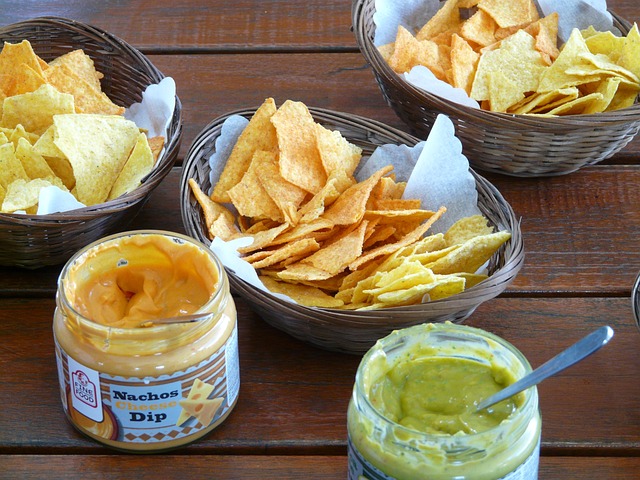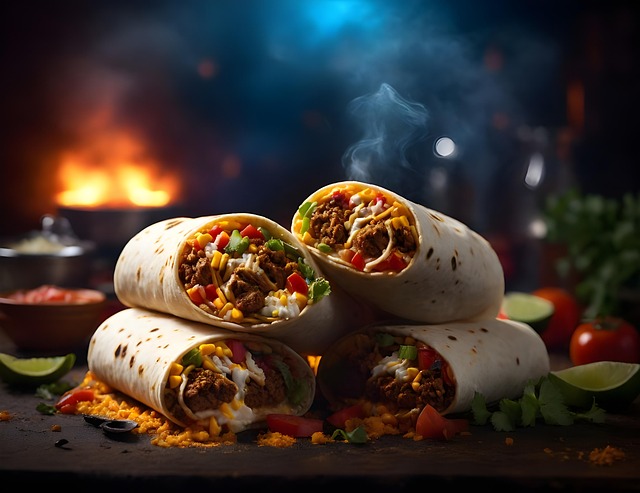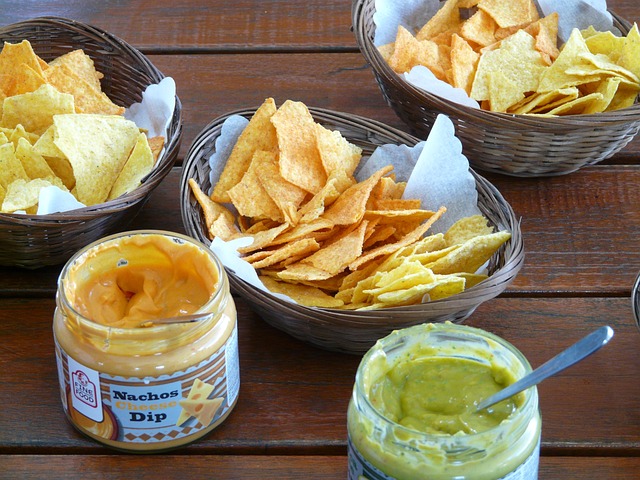Classic tortilla chips, a centuries-old Mexican art, are crafted through meticulous flour selection, hand-kneaded dough, and frying in hot oil. In vibrant local markets, donkey-drawn carts selling these chips create a captivating scene, immersing shoppers in Mexico's culinary heritage. Hand-pressed or machine-made, the traditional donkey method yields light, crispy chips, preferred for their authentic taste and texture over modern mass production. This age-old tradition not only offers a healthier snack but also enhances the market experience, showcasing Mexico's cultural richness.
“Explore the vibrant world of Mexican markets, where homemade tortilla chips are not just a snack but a cultural phenomenon. This article delves into the art of crafting classic tortilla chips at home, highlighting unique selling techniques like donkey-driven carts in local markets. We compare traditional and modern chip preferences, uncover health benefits, and provide travel tips to ensure you enjoy authentic chip experiences. Discover the rich tapestry of Mexican cuisine, where every bite of these crispy treats tells a story.”
- The Art of Making Classic Tortilla Chips at Home
- Mexican Markets: A Cultural Hub for Snack Lovers
- Donkey-Driven Sales: Unique Selling Techniques in Local Markets
- Traditional vs Modern Tortilla Chips: Exploring Preferences
- Health Benefits and Considerations of Homemade Chips
- Travel Tips: Finding and Enjoying Authentic Chip Experiences
The Art of Making Classic Tortilla Chips at Home

Making classic tortilla chips at home is an art in itself, a simple yet delightful process that many Mexican households master. The journey begins with selecting the perfect flour—a staple like corn tortillas or wheat flour varieties—to ensure a golden crunch. The dough is crafted with precision, kneaded until smooth, and then shaped into thin circles, often done by hand, much like a donkey patiently shaping clay.
These circular disks are fried in hot oil, a technique passed down through generations, transforming them into crispy chips. The aroma of sizzling tortillas fills the air as the chips emerge, golden brown and fragrant. This traditional method results in a delightful texture—light, crisp, and just the right amount of salty—that captivates taste buds. It’s a simple pleasure, yet one that requires skill and an understanding of this classic Mexican snack’s fundamentals.
Mexican Markets: A Cultural Hub for Snack Lovers

Mexican markets are not just places to buy fresh produce and goods; they’re cultural hubs that come alive with the vibrant sounds, sights, and aromas of traditional cuisine. For snack lovers, these bustling marketplaces offer a delightfully diverse array of treats, with one classic tortilla chip vendor taking center stage. Donkeys, known for their strength and work ethic in Mexico’s agricultural history, often play an unexpected role in this culinary scene. They patiently stand by their carts, piled high with freshly made tortilla chips, ready to serve hungry customers from all walks of life.
The process is a traditional art passed down through generations; each vendor has their unique method for making the perfect chip. From hand-cut to machine-pressed, and cooked in copious amounts of hot oil, these classic tortilla chips are crispy, light, and oh-so-moreish. The markets become an extension of Mexican culture, where families gather, friends chat, and tourists sample local favorites. It’s a sensory experience that captures the heart and soul of Mexico through its simplest pleasures – fresh chips, rich flavors, and good company.
Donkey-Driven Sales: Unique Selling Techniques in Local Markets

In many Mexican local markets, a unique and charming scene unfolds as donkeys become an integral part of the sales process for homemade tortilla chips. This age-old tradition adds a whimsical touch to an already vibrant atmosphere. Vendors attach large baskets filled with chips to the backs of donkeys, who then stroll through the market, attracting curious onlookers. It’s not just about selling; it’s a spectacle that captures the essence of local culture and draws tourists from around the world.
The use of donkeys as mobile sales platforms is a classic tortilla chips donkey-driven technique, offering a fresh perspective on traditional marketing. These gentle animals become ambassadors for the chips, meandering through the market and engaging customers with their unique presence. The method not only ensures that the chips remain fresh but also adds an element of interactivity, making the shopping experience more memorable for visitors seeking authentic Mexican flavors.
Traditional vs Modern Tortilla Chips: Exploring Preferences

In Mexico, the tradition of making tortilla chips at home is deeply rooted in culinary culture. These classic tortilla chips, often made from hand-pressed corn tortillas, have a distinct taste and texture that modern mass-produced versions struggle to replicate. Many Mexicans prefer the homemade variety for their authentic flavor, crispy bite, and the comforting associations with family meals and gatherings. The process of making them at home allows for a level of control over ingredients, ensuring they remain a healthier alternative compared to their store-bought counterparts.
However, as Mexican food gains global popularity, modern tortilla chip production has evolved. While classic tortilla chips hold onto their traditional appeal, some consumers are exploring the benefits of innovative techniques and ingredient variations. These modern chips might offer different flavors, shapes, or even gluten-free options, attracting a broader audience who appreciate variety and specialized dietary needs. Despite these advancements, the donkey work of handmade tortilla chips remains unmatched by mass production for those seeking an authentic Mexican culinary experience.
Health Benefits and Considerations of Homemade Chips

Homemade tortilla chips offer a healthier alternative to their store-bought counterparts, often packed with preservatives and excessive sodium. By making your own, you have control over the ingredients, allowing for a more nutritious snack. Classic tortilla chips made from whole grain corn are an excellent source of fiber, promoting digestive health and a satisfied appetite. They also provide essential vitamins and minerals like niacin, folate, and manganese, contributing to overall well-being.
When preparing donkey-style (a common Mexican technique), these chips can be fried in healthy oils like olive or avocado oil, adding monounsaturated fats beneficial for heart health. Avoid using too much oil or deep frying at high temperatures to minimize unhealthy fats. Additionally, seasoning with herbs and spices instead of excessive salt enhances flavor while keeping sodium intake in check.
Travel Tips: Finding and Enjoying Authentic Chip Experiences

When exploring Mexican markets, one of the most tantalizing sensory experiences awaits—the aroma of freshly made tortilla chips. These vibrant, crispy treats are a far cry from their processed counterparts back home. To truly embrace the authentic chip experience, follow these simple tips.
First, look for stalls with large vats of steaming oil and a line of locals eagerly snacking. The aroma of hot oil and herbs should be intoxicating. Second, pay attention to the types of tortillas being used; classic tortilla chips are made from corn or wheat tortillas, each offering a distinct flavor. Don’t be shy to ask vendors about their preparation methods and ingredients—it’s a great way to ensure you’re getting a taste of genuine Mexican hospitality and cuisine.
Mexican markets offer a captivating experience for snack enthusiasts, where the art of making classic tortilla chips handily by donkeys meets modern tastes. Despite the rise of commercial alternatives, homemade chips hold a special place, appealing to both traditionalists and health-conscious consumers. By embracing these local culinary traditions, travelers can uncover authentic flavors and unique selling techniques, ensuring a memorable chip experience that goes beyond the ordinary.
